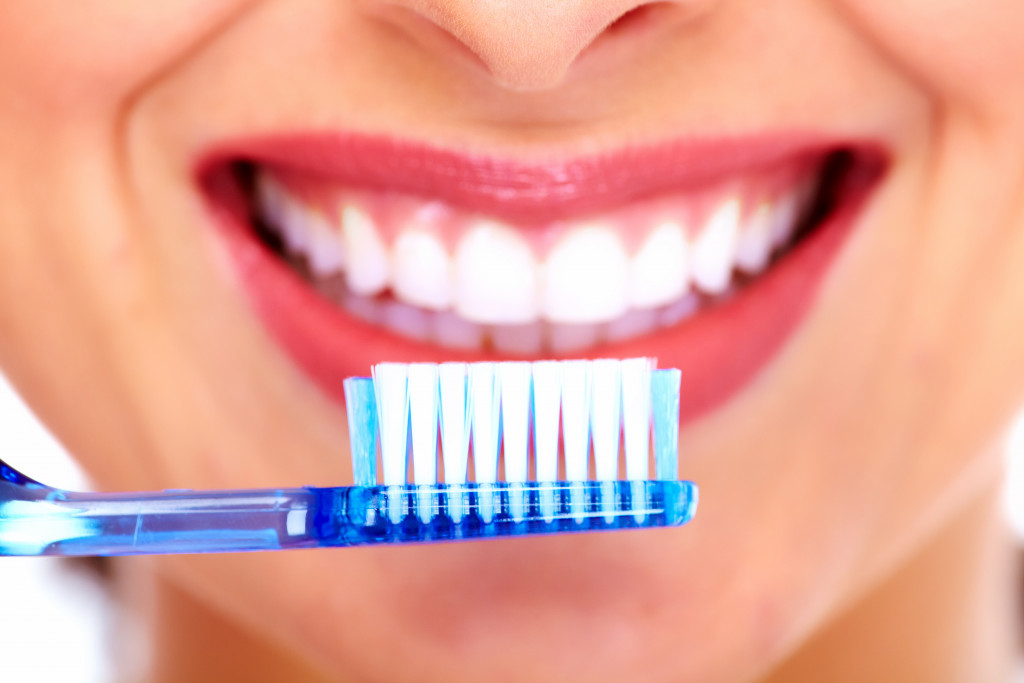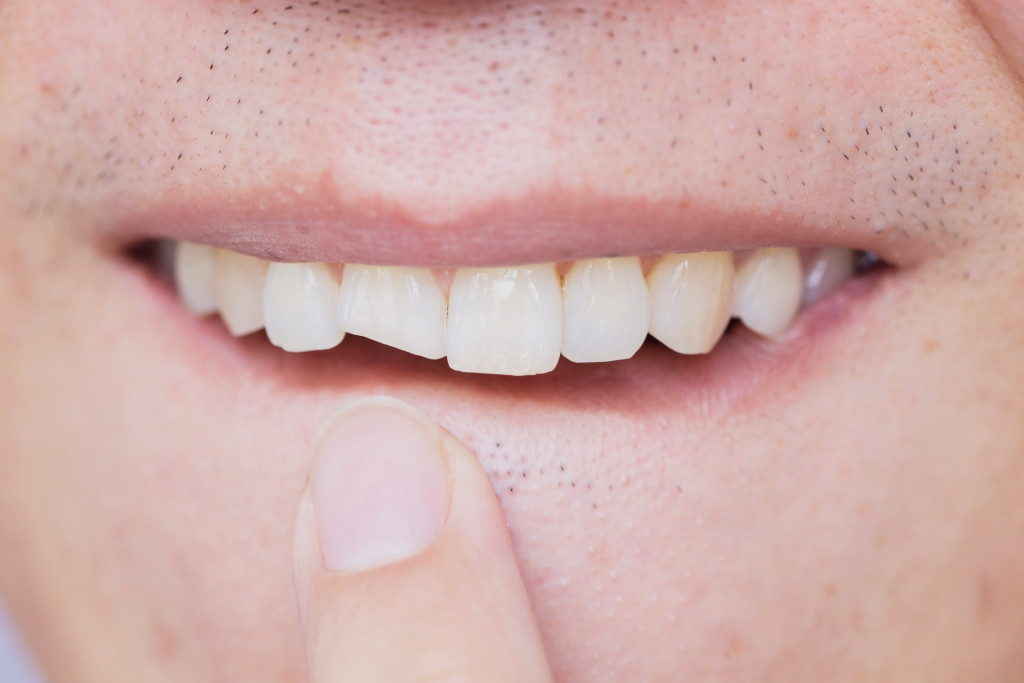- Choose the right toothpaste formulated for sensitive teeth.
- Avoid pH imbalances in the mouth by reducing acidic foods and drinks.
- Use a soft-bristled toothbrush to be gentle on your gums.
- Maintain regular dental visits for checkups and professional cleaning.
- Cut back on sugary and acidic foods to reduce enamel wear.
Sensitive teeth can be an uncomfortable and inconvenient issue to deal with, but luckily, you can take steps to manage the pain. Common triggers of tooth sensitivity include cold temperatures, acidic foods, and beverages, sweet treats, or brushing too hard. If your teeth are sensitive, here are five tips to help relieve the discomfort and keep your teeth healthy.
1. Choose the Right Toothpaste
Tooth sensitivity can often be caused by using toothpaste that is too harsh on teeth. If you are in this situation, try switching to a toothpaste specifically formulated for sensitive teeth. These special formulas contain ingredients such as strontium chloride or potassium nitrate, which help to block the flow of sensations from the tooth nerves. Additionally, many sensitive kinds of toothpaste are fluoride-based, giving them the added benefit of helping protect your teeth against cavities.
2. Avoid pH Imbalances
The acidity levels in your mouth can affect how easily you experience pain when consuming hot, cold, or sweet foods and drinks. To maintain a healthy oral pH balance and reduce sensitivity, avoid acidic foods such as citrus fruits, carbonated beverages, and vinegar-based dressings. Additionally, it may be helpful to rinse your mouth with water after meals to neutralize any remaining acidity.
3. Use a Soft-Bristled Toothbrush
When brushing your teeth, use a soft-bristled toothbrush. Brushing too hard can wear down enamel and lead to sensitivity. Additionally, make sure to replace your toothbrush every three months or whenever it starts to look frayed. A good way to remember is to replace it at the start of every season. Soft-bristled toothbrushes are also gentler on your gums and help prevent gum recession. Choose a brush that has a comfortable handle and is sized appropriately for your mouth.
4. Maintain Regular Dental Visits
Visiting your dentist’s office regularly is an important part of maintaining good oral health, even if you don’t have any apparent problems with your teeth. A professional cleaning and regular checkups will help keep your mouth healthy and can also help detect any early signs of sensitivity before they become a bigger issue.
5. Cut Back on Acidic and Sugary Foods
Highly acidic or sugary foods can hurt the enamel on your teeth, leading to increased sensitivity when eating or drinking. To prevent this, try reducing your consumption of acidic and sugary foods such as candy, soda, and citrus fruits. Additionally, brushing your teeth with fluoride-based toothpaste twice daily can help reduce the effects of acid wear and keep your teeth healthy.
Commonly Asked Questions
What are the most common causes of sensitive teeth?
The most common causes of sensitive teeth include worn tooth enamel, gum disease, cracked or chipped teeth, exposed tooth roots, and cavities. Aggressive brushing, acidic foods/drinks, and certain dental treatments like bleaching or tartar removal can also cause your tooth to be sensitive.
When should I seek professional help for sensitive teeth?
You should consult a dentist immediately if you experience consistent pain from your sensitive teeth that do not go away with over-the-counter medications such as ibuprofen or acetaminophen. Dental professionals can examine your mouth and determine which treatments will relieve your symptoms.
Are there any home remedies to help with sensitive teeth?
Yes, you can try several simple strategies at home that may help relieve your tooth sensitivity. Switching out your regular toothpaste for one specifically designed for sensitive teeth is one of the easiest ways to reduce sensitivity. You can also try reducing your intake of acidic foods and drinks or using a soft-bristled brush when brushing your teeth to be gentler on your gums.
Is it safe to use whitening products if I have sensitive teeth?
It’s best to consult a professional before using any type of bleaching or whitening product if you have sensitive teeth. Your dentist can recommend safe products for your teeth and gums and provide specific instructions on how to use them safely.
In Summary
Tooth sensitivity can be a frustrating problem, but it doesn’t have to stop you from enjoying the foods and drinks you love. Following these five tips for managing sensitive teeth, you can protect your mouth from pain and maintain good oral health. Remember to visit your dentist regularly for professional cleanings and checkups to ensure that any early signs of sensitivity are caught before they become more serious. With the right plan in place, you can continue to enjoy your favorite foods and drinks without fear of discomfort.


